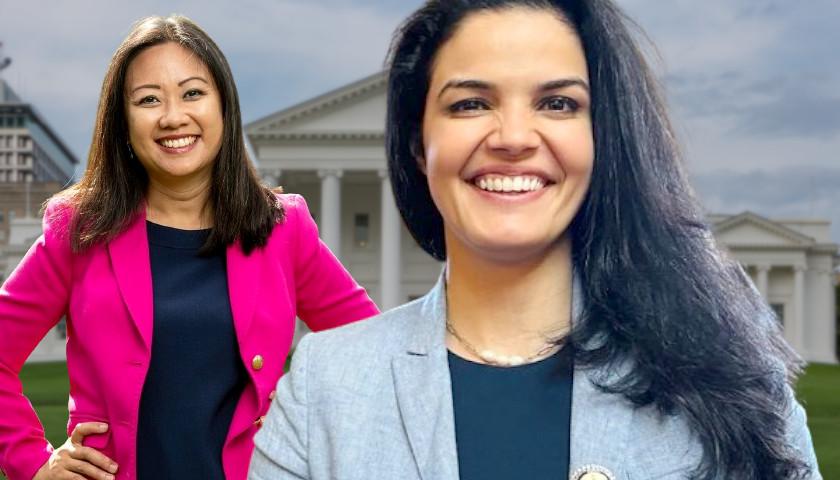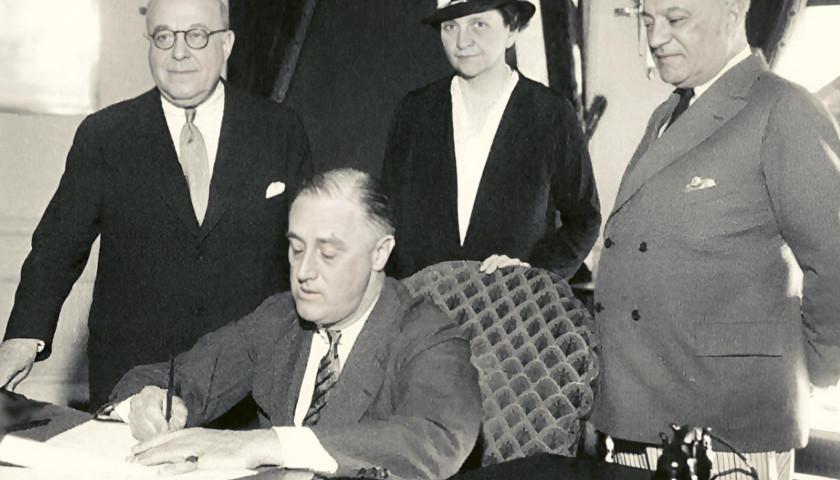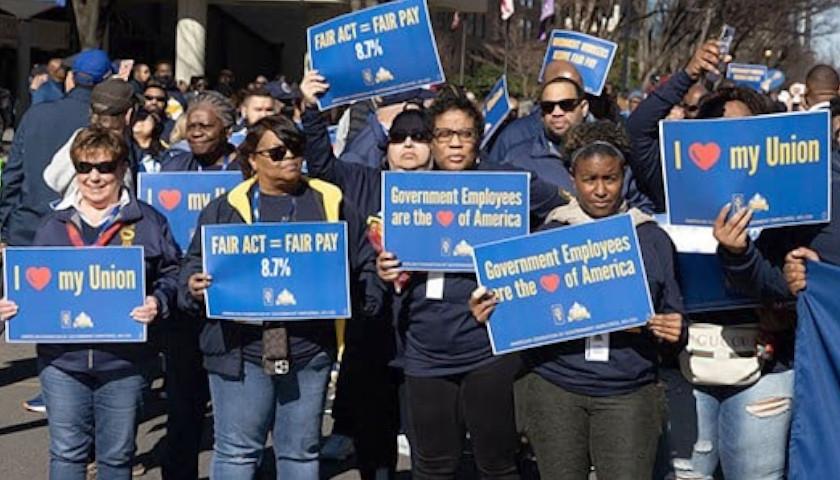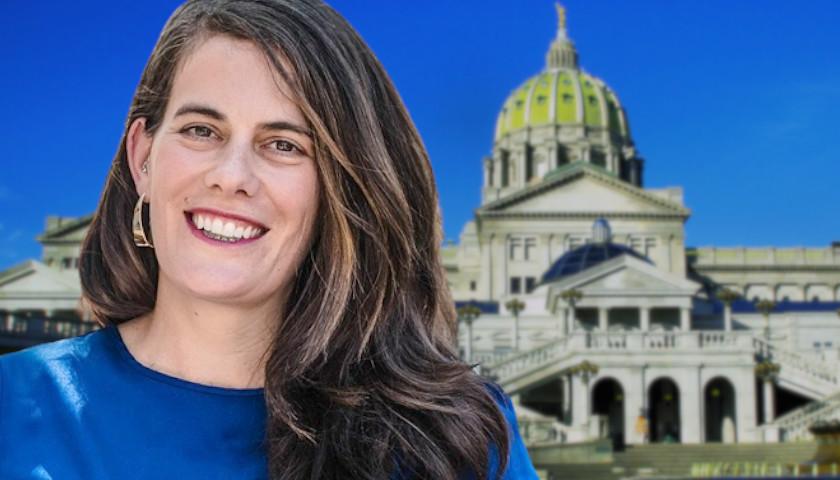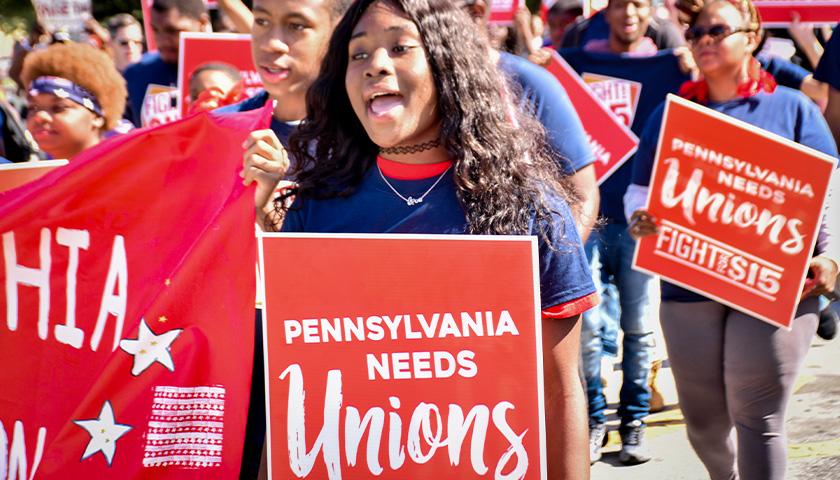by Morgan Sweeney
Two bills to expand collective bargaining in the commonwealth came before the House Labor and Commerce Subcommittee #2 Thursday, one by Del. Katrina Callsen, D-Albemarle, for public transportation providers and the other by Del. Kathy Tran, D-Fairfax, for all public employees in Virginia.
The subcommittee quickly voted to incorporate Callsen’s bill into Tran’s HB 1001, expanding collective bargaining for public sector employees from something authorized at the local level to a universal right for all, including state employees.
“This [bill]… expands the right of state employees and also makes sure that all employees at the local level have that opportunity,” Tran told the committee. “It’s about giving workers a voice at the decision-making table, recognizing the dignity of workers and that workers are an integral part of our workplaces.”
Collective bargaining was banned in the commonwealth’s public sector until Virginia’s legislature passed a law in 2020 that allowed local governments to authorize collective bargaining.
But that bill, while “an incredible step forward,” according to Tran (pictured above, left), didn’t go far enough.
While the law made unionizing possible locally, it does not include such permissions for state employees. The law has also resulted in a patchwork of union policies across the state where unions represent groups of local-level employees in one city or county but not in the next, as Callsen explained when she presented her bill.
“Currently, public bus drivers working for Jaunt, which services Charlottesville and Albemarle, are not legally allowed to enter into collective bargaining, but public bus drivers for Charlottesville are,” Callsen (pictured above, right) said.
Tran’s bill would make collective bargaining a universal right of all public employees in Virginia — including state employees — no longer dependent on local decision-making. It would also create a Public Employee Relations Board to help oversee representation elections, identify bargaining units and mediate labor-management disputes. It would repeal a provision that protects voting by secret ballot for union representation as “a fundamental right that shall be guaranteed from infringement.”
Unsurprisingly, several unions testified for the bill on Thursday, with Jason Parker of the AFL-CIO calling the ability to unionize “a hallmark of a free society.”
“Holding back workers from collectively bargaining is the stuff of tyrannical governments,” Parker said.
Brian Turner of the Virginia conference of the American Association of University Professors also spoke in favor of the bill.
“We strongly support this bill to strengthen our institutions of higher education and keep us competitive in attracting national and international scholars and teachers to our institutions,” Turner said.
The bill saw opposition from several organizations, including Virginia Professional Educators, a non-union professional teacher association, whose representative shared concerns about the board the bill seeks to establish and the elimination of the secret ballot.
“We’re very concerned about the abolition of the secret ballot to select the collective bargaining agent. A secret ballot election is the American way, and it also lessens the possibility of intimidation,” said John Szewczyk of the VPE.
Janet Lawson, director of the Department of Human Resource Management for Virginia, spoke against the bill, saying the administration had “numerous” concerns — one being the cost.
“There has been no study or further discussion about what it would really take to set up this type of infrastructure within the commonwealth,” said Lawson, who earlier said that at a “very conservative estimate,” it would cost $19 million.
“We don’t believe we need collective bargaining in the state…. We do believe that employees have a seat at the table and are encouraged to share feedback. Our benefits are some of the best in the commonwealth. Things that you would normally negotiate, we believe are already in place,” Lawson said.
The subcommittee voted 5-3 along party lines to report the bill and refer to appropriations.
– – –
Morgan Sweeney is a staff writer covering Virginia and Maryland for The Center Square. Morgan was an active member of the journalism program as an undergraduate at Hillsdale College and previously freelanced for The Center Square.
Photo “Katrina Callsen” by Katrina Callsen for Delegate. Photo “Kathy Tran” by Delegate Kathy Tran. Background Photo “Virginia Capitol” by Martin Kraft. CC BY-SA 3.0.

